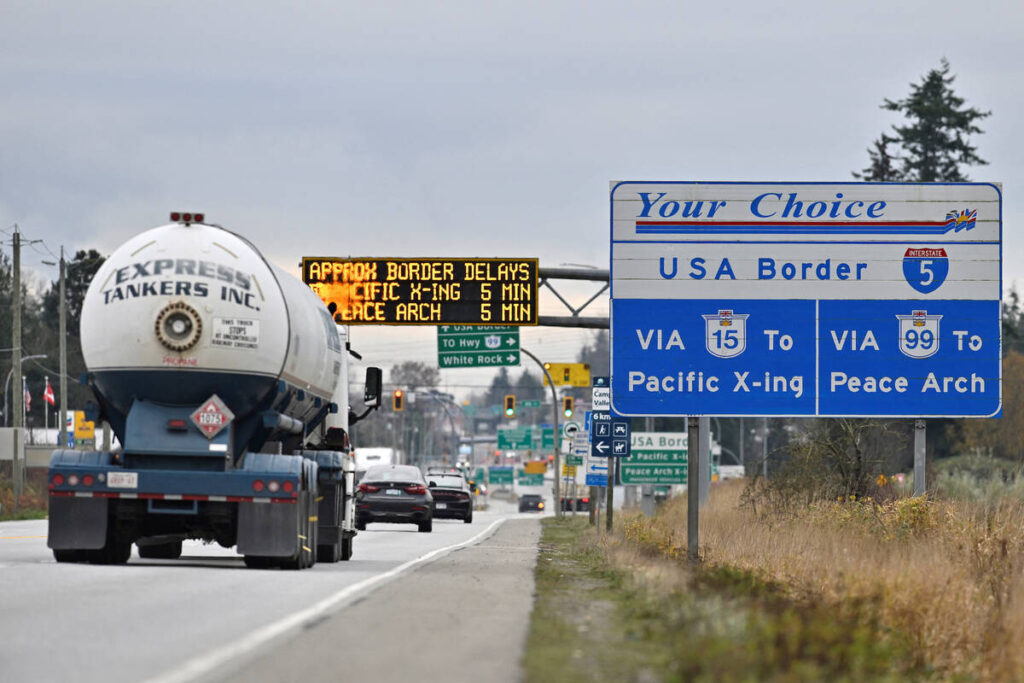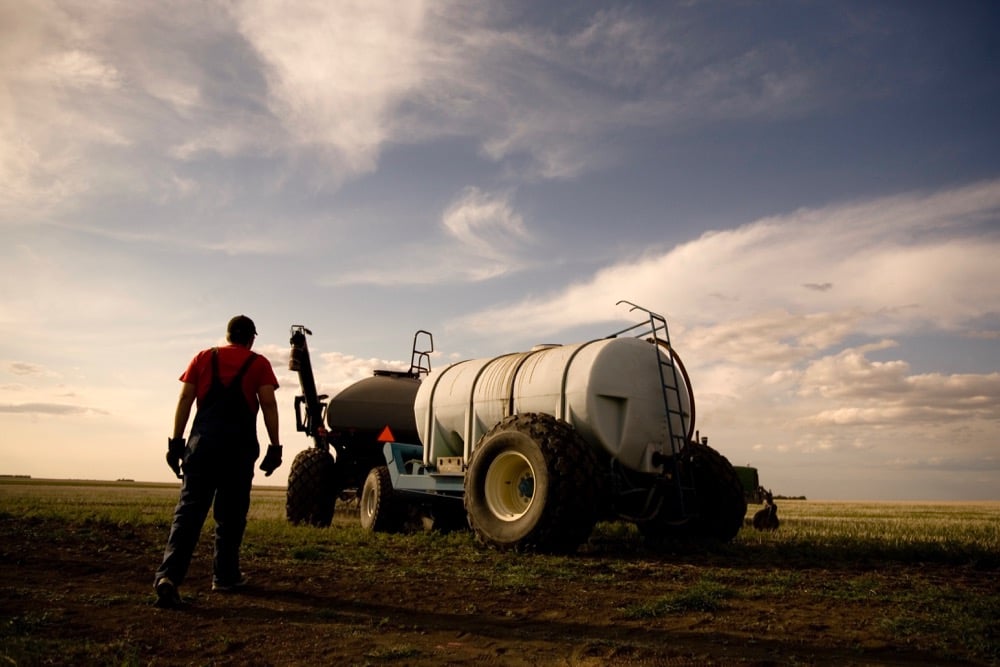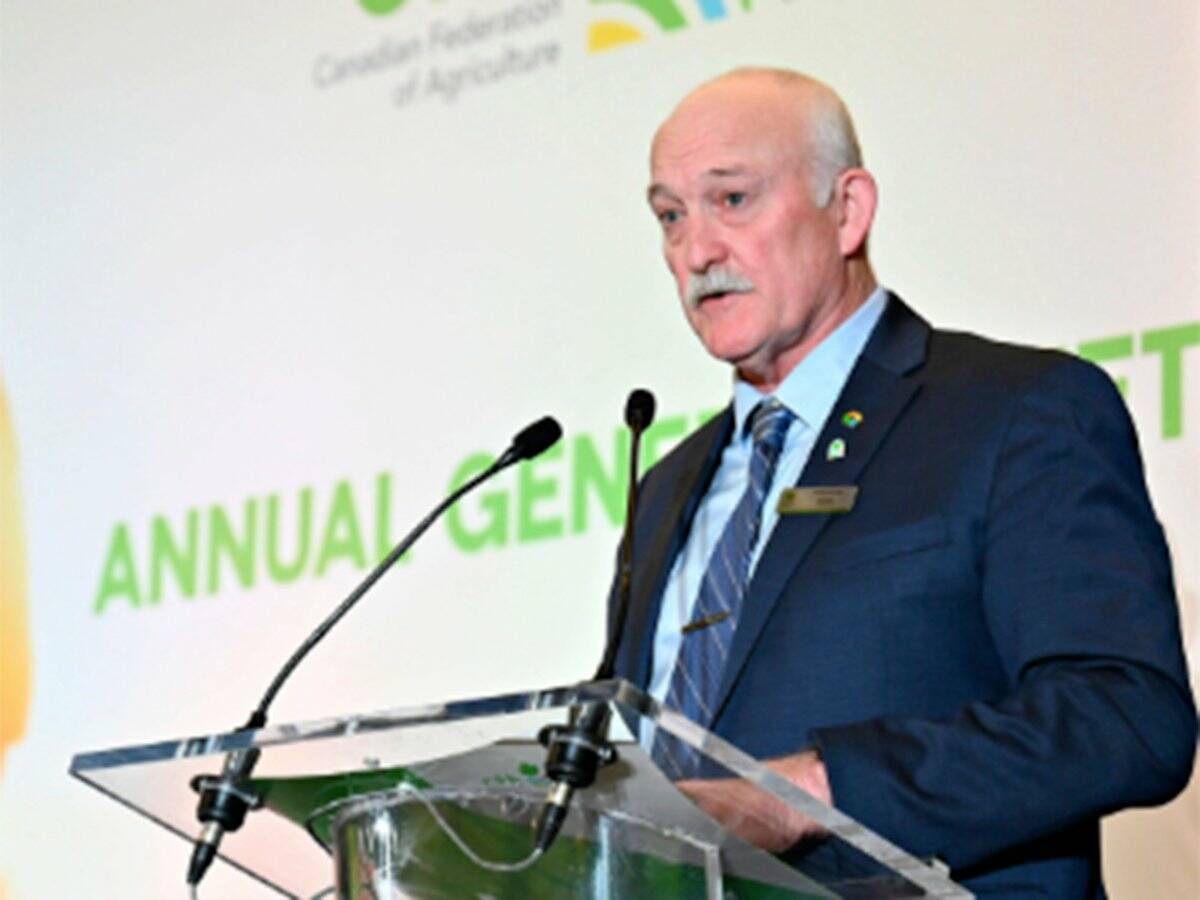Tariffs Day 4 | Combing through the wreckage

While there’s been a reprieve on U.S. tariffs, the countdown is still ticking and the remaining bombs are still armed and ready to explode in less than a month’s time.
U.S. President Donald Trump is already promising new tariffs and Canada remains at the economic ramparts.
As a coffee mug I saw today wryly noted, we are all now tariff war veteran.
The politics
The Reuters news service reported on Friday that U.S. President Donald Trump railed against what he called tremendously high Canadian tariffs on dairy and lumber, and said his administration could soon impose reciprocal tariffs on Canadian products.
Read Also

Federal government offers farmers relief but may not go far enough, says expert
Federal government pledged $5 billion to diversifying exports, $1 billion in extra financing through Farm Credit Canada, and returned the Advance Payments Program interest-free portion to $250,000 from $100,000.


“Canada has been ripping us off for years on tariffs for lumber and for dairy products,” Trump told reporters in the Oval Office. “They’ll be met with the exact same tariffs, unless they drop it, and … we may do it as early as today or we’ll wait ‘til Monday or Tuesday.”
Trump also mentioned India’s high tariff rates, but said India had agreed to lower its import duties.
The comments add to Trump’s trade pressure campaign against the Canadian government, which he accuses of failing to stop the flow of fentanyl across the northern U.S. border and of unfairly taking advantage of the U.S. market.
Trump also said on Friday that he gave Canada and Mexico a break from his new 25 per cent tariffs for goods compliant with a regional free trade deal because he wanted to help automakers, but added that the reprieve was a short-term measure and tariffs could go up over time.
But he said that on April 2, reciprocal tariffs would be implemented to equalize any duty rates between the three countries. Under the 2020 U.S.-Mexico-Canada Agreement on trade that he negotiated and signed, there are almost no tariffs on products crossing North American borders.
“I wanted to help the American carmakers until April 2nd,” Trump said. “April 2nd, it becomes all reciprocal. What they charge us, we charge them. It’s a big deal.”
Trump, in an interview aired by Fox Business Network a day after the 30-day delay, said: “I thought it would be a fair thing to do, and so I gave them a little bit of a break for this short period of time.”
Speaking to media federal conservative leader Pierre Poilievre, who political opponents have attempted to paint as Trump-friendly, had his strongest words yet, telling the U.S. president to “knock it off” and “stop the chaos.”
Meantime the first wave of Canadian counter-tariffs remain in effect, but the second tranche, worth an additions $125 billion, are on pause until April 2.
Farmer supports
On Friday, the federal Department of Finance announced several investments meant to protect Canadian businesses, including $1 billion in financing through Farm Credit Canada (FCC). According to a news release, the money will help to reduce financial barriers in the agriculture sector.
“This lending offer will help address cash flow challenges so businesses can adjust to a new operating environment and continue to supply the high-quality agricultural and food products that Canadians rely on,” the release read.
The federal government also announced a $5 billion program to help Canadian exporters reach new markets.
The government also announced it will return to the $250,000 interest-free loan limit of the Advanced Payments Program (APP) through the 2025-26 program year. It was previously announced at $100,000.
Tyler McCann, managing director of the Canadian Agri-Food Policy Institute, said he was glad to see the government taking some action.
However, McCann said many of Friday’s investment announcements fall short.
“I think that there’s a really big difference between extending more credits to Canadian businesses, which is largely what today’s announcement was, and the government investing in things like the agri-marketing program,” he said.


A summit planned for the end of the month will bring together producers from across Saskatchewan to talk about critical agricultural issues.
Tariffs and trade are at the top of the list.
Agricultural Producers Association of Saskatchewan president Bill Prybylski said eight groups have come together to host the summit in Saskatoon. Typically, APAS hosts a policy conference in conjunction with its spring board meeting, and this year the event is broader.
“Obviously the tariffs are the big topic of discussion, but there are a lot of other things that we need to talk about,” he said.
The president of Canada’s largest farm organization says people are anxious about looming tariffs and other uncertainties.


Keith Currie said the Canadian Federation of Agriculture re-focused much of the group’s recennt annual meeting agenda because of that environment.
“We really pivoted much of our discussions that we had originally intended at the AGM because of not only the tariff threat but also what’s happening with our own government situation here in Canada,” he said after the meeting.
The unknowns are unsettling, he added.
-With files from Reuters, Karen Briere and Jonah Grignon
Source: Farmtario.com

